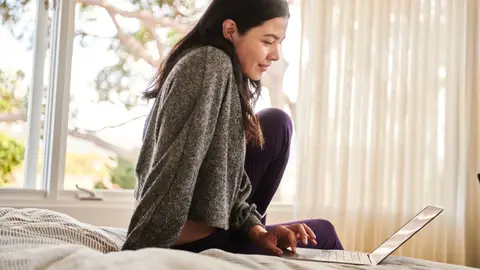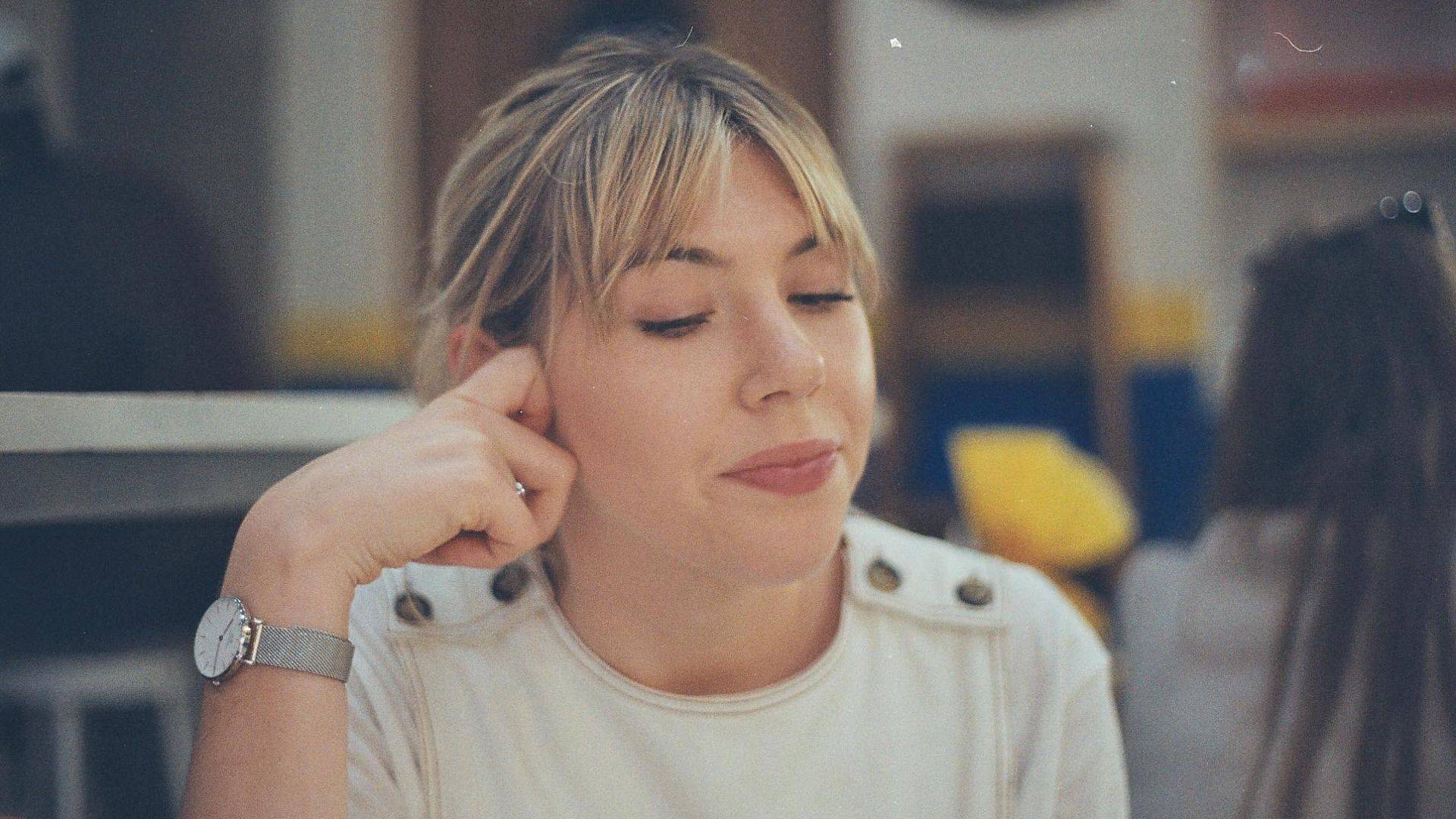Is Being Too Busy Just A Bad Habit? Make Time To Meditate On That

Perspective is a funny thing. After a decade or more of everyone being busy, busy, busy, along came COVID-19. Our learned association between busyness and virtue was so strong that even in lockdown, being too busy remained a thing. At the height of the Zoom trivia/drinks/game nights craze, being double-booked became unexpected pandemic status plays.
It took nurturing sourdough starter instead of ourselves for many to finally question the very idea of busy. Is it really something to aspire to? Or a convenient way to avoid dealing with life? You'd think a period of enforced isolation would automatically encourage mindful living and self-contemplation. But for many of us the stress and insecurities of everyday life were simply transferred to our quarantine selves, and intensified by our inability to escape.
Sometimes, when you're deep in it, even seeking a solution to being busy feels like one more way to put pressure on ourselves. By its very nature meditation is a valve, providing mental, physical and spiritual release. Lizzo knows – as quarantine began to bite, she led a mass meditation on her Instagram to help alleviate growing fear and stress.
Why you should learn how to meditate
Somehow, emotional and spiritual burnout has become an unavoidable side-effect of the pandemic. Suggestions for filling all that spare time – something that didn't exist for those who found themselves working longer than ever – soon began to feel like a competition. Anyone who didn't emerge from iso ripped, multi-lingual and growing their own food from scraps was just wasting their time. It's no wonder so many of us turned to TikTok and meme therapy instead.
Meditation might feel like just one more thing to add to your to-do list, and in truth it is, but it also makes doing everything else on the list easier. Regular meditation is known to bring focus, clarity and a sense of calmness, which carries over into the rest of your day.
Meditation and mindfulness have been shown to help build skills for managing stress, bring a new perspective to stressful situations, increase self-awareness, reduce negative emotions and increase imagination, creativity, patience and tolerance. Research has also found meditation can help people manage symptoms of anxiety, asthma, chronic pain, disturbed sleep and other health issues – as a supplement to, not a replacement for, other medical treatment.
Anyone can meditate
One of the things that makes meditation such a great addition to any life is that there are very few bars to entry. You don't need to invest in expensive gearor pay for a subscription in order to get started. Those things are great if they help you reach your goals, but all you really need to start meditating is a little bit of time, a quiet space and some knowledge of the basics. Whether you're more comfortable feeling your own way through, or respond to structure and guidance, you can learn to meditate. And reap the benefits.
How to meditate
The tenets of meditation are both simple and difficult – simple to explain, but surprisingly difficult to do at first. There are lots of different types of meditation, but they all come down to the same four basic steps:
- Get comfortable and relaxed
- Focus on your breathing, or an object like a crystal
- Clear your mind
- Stay relaxed, focused and clear for your chosen amount of time
It's the clearing your mind that is the hardest bit for most beginners. Meditation is designed to still our constantly chattering brains. Even if you're someone who can happily stare out of a window and think about absolutely nothing for hours, trying to do it deliberately can make your brain perversely chatty. The cycle often goes: Relax. Breathe. Think about nothing. What does that even mean? How do you think about nothing? What is nothing? Why is my leg itchy? Can I scratch that itch? If I'm thinking about scratching that itch am I still thinking about nothing? How do you think about nothing?
Meditation for beginners
Sometimes the best way to get started is to experiment with different types of meditation until you find the one that works for you. There's a style of meditation out there for everyone. Five of the most popular ways to meditate are:
Mindful meditation is simple and fairly structured, which makes it easy to build into your normal routine.
Focused meditation is when you focus your attention on an object, sound or sensation to enter a meditative state.
Spiritual meditation focuses on exploring your deeper beliefs and your relationship with all things spiritual.
Crystal meditation is a form of focused meditation where you use a chosen crystal to help guide your meditation.
Guided meditation is when you follow a teacher, voice or guide and is a popular way to begin a meditation journey.
Meditation resources:
Find a mentor or teacher to help you get started and improve your practice over time.
Experienced practitioners often offer really useful tips and suggestions.
Your favourite music streaming service probably has some great meditation playlists too
Written by Francesca Newby, a Sydney-based freelance writer and editor. You can follow her at @chessiers.





